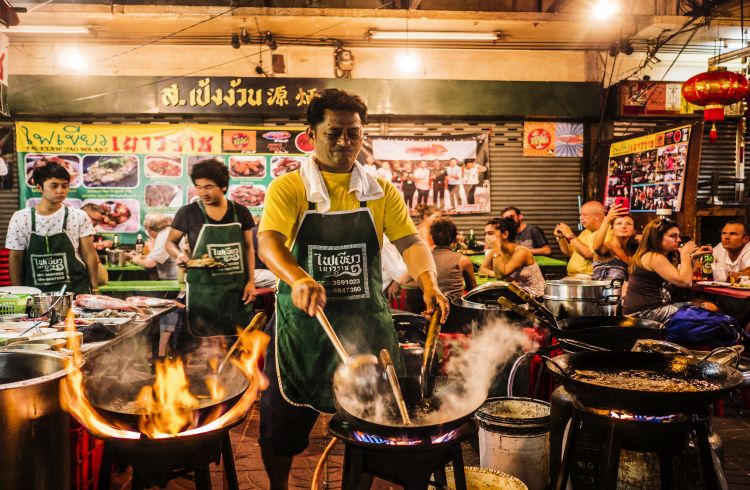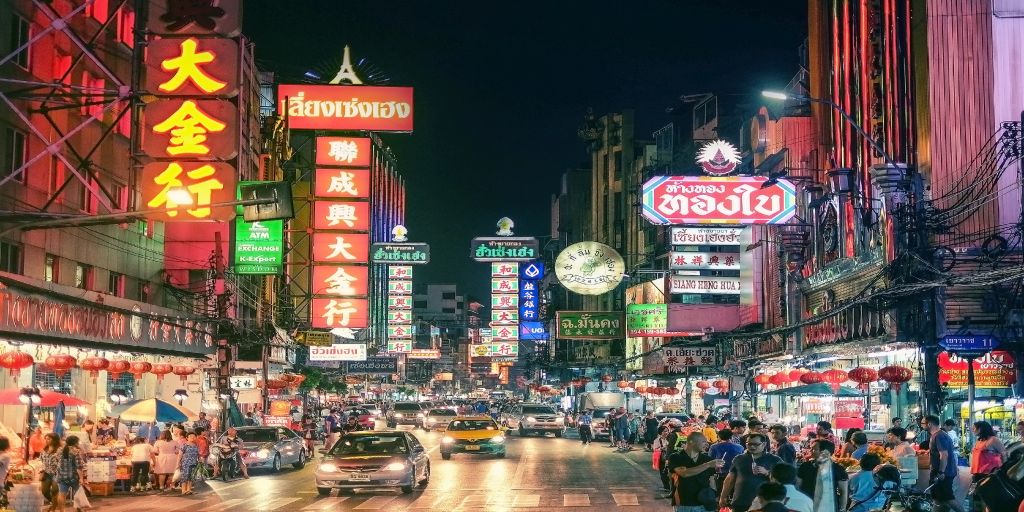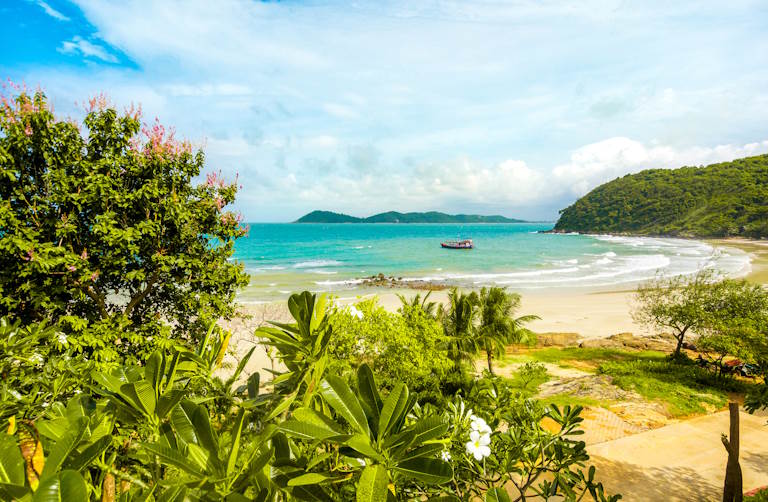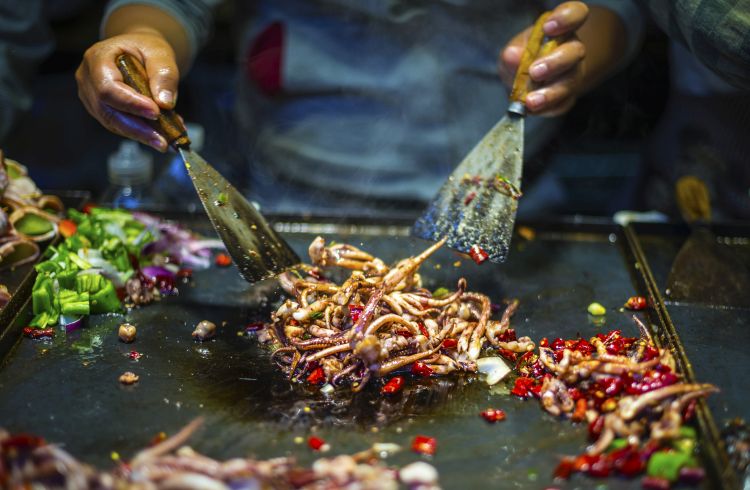How to Stay Healthy While Traveling in Thailand
There's more than a few ways to fall ill in Thailand. Find out how to avoid getting sick with these health and hygiene tips.
 Photo © iStock.com/aluxum
Photo © iStock.com/aluxum
While there are many viruses and illnesses that can beset a traveler in Thailand, easily the most common way to become ill is by consuming unsanitary food or drinks. Getting an upset stomach is almost a given for many tourists to Thailand, but if you follow certain rules you’ll minimize your chances of becoming significantly ill.
- Choose your food carefully in Thailand
- Food is spicier in Thailand
- Avoid ice and filtered water in Thailand
- Choosing a hospital in Thailand
Choose your food carefully in Thailand
The number one way to get food poisoning in Thailand is by eating something that isn’t fresh. Obviously, you can’t know how fresh the ingredients are in a dish being cooked for you. What you can control, however, is when that dish is cooked.
The safest option is to avoid pre-prepared foods in favor of those cooked to order and then served steaming hot. Throughout Thailand, it’s common to see restaurants that sell dishes prepared in bulk and kept simmering in pots. While many tourists eat from such venues with no problem, if you have a sensitive stomach they’re best avoided.
If you have a really troublesome belly, then avoid meat and seafood (which easily carry bacteria) and go vegetarian. Thai food is so flavorful that its dishes still taste amazing even without any protein. Just tell the waitress or street food vendor “Mangswirati kap”, which means “vegetarian, please”, and they’ll prepare any Thai dish you choose sans meat or seafood.
I avoid seafood unless I’m in a Thai destination reasonably close to the coast. Otherwise, I could be eating fish or shrimp that spent a long time being transported to my landlocked location, perhaps in storage conditions that aren’t ideal.
Food is spicier in Thailand
Thai food served in Western countries is typically very mild compared to that served in Thailand, as my Bangkok born-and-raised wife complains whenever we try her home cuisine in Europe or Australia. You can’t fathom how hot Thai food actually is until you eat there. It is, without a doubt, the spiciest national cuisine I’ve encountered while visiting 60-plus countries.
Even now, after dozens of visits to Thailand, I still often get a sore stomach from excessive chili consumption rather than food poisoning. This is due to capsaicin, the compound in chilis that stimulate pain fibers, which is pleasant and enhances flavors at the right levels. At exaggerated levels, though, it can trigger diarrhea, nausea and abdominal pain.
That’s why tourists to Thailand need to be wary when ordering from restaurants which, unless you instruct the staff otherwise, may make you blazing dishes catered to local tastes. Certain Thai dishes are particularly volcanic. Som Tam (papaya salad) has singed my mouth and stomach many a time. As has Tom Yum, the sour soup made with shrimp or chicken.
If you do eat Thai food that’s too spicy for you, and get a sore stomach, then water or milk might help, but they won’t solve your problem. The most potent treatment is taking a calcium carbonate antacid, such as Gaviscon or Tums, which can be bought at most Thai pharmacies.
Not all Thai dishes are spicy, however. Some are relatively mild and served with chili on the side, which allows the diner to then make the dish as hot as they prefer. This includes many noodle soups, of which there are dozens of varieties. It also goes for a lot of dry noodle dishes, like Kway Teow (broad noodles with stir fried meat and vegetables), and the traveler favorite Pad Thai.
Avoid ice and filtered water in Thailand
Across dozens of trips throughout Asia, drinks (or ice) have caused me to get gastro as often as food. Clearly, drinking tap water in Thailand is to be avoided. I also steer clear of filtered tap water. The latter is commonly drunk by Thai people, who either fit a filter to their taps at home, or buy filtered water from dispensers found in public spaces.
I can’t claim to know how often such filters are cleaned or changed. But what I can say is that on most of the few occasions I’ve drunk filtered water in Thailand, I’ve become ill. A couple of those times I got mildly sick, but twice I was very unwell for several days. That’s why I don’t drink water served to me in a glass, only from an unopened bottle.
Ice can also pose a risk. Most ice in Thailand, is made in factories from sanitary water and is safe to consume. Normally, this ice is in the shape of a large cylindrical cube, with a gap through the middle. If you are served solid chunks of ice, which look like they’ve been made in trays, I’d push it aside.
Should you get a sick stomach from drinks, ice or food then go to a pharmacy and ask to speak to the pharmacist. Most of these medical professionals speak English very well and will explain whether you need only pain killers and anti-diarrhea medication, or if your case is serious enough to warrant a course of antibiotics.
Choosing a hospital in Thailand
Thailand's public hospitals will treat tourists if they have sufficient travel insurance. But these facilities are often overcrowded and of a lower standard than public hospitals in most Western countries. Thailand does, however, boast many world-class private hospitals, which can be found in major tourist destinations like Bangkok, Phuket, Pattaya and Chiang Mai. The accommodation and service at these facilities outstrips most public hospitals in the West.
Private hospitals are, of course, a business and some of these facilities in Thailand have a bad reputation for squeezing every last baht out of patients. I won’t list those unscrupulous hospitals here, as Thailand has strict defamation laws, but a quick Google search will enlighten you. Regardless of what hospital you settle on, before you commit to a treatment, appointment, or stay at a public or private hospital in Thailand, get a written quote confirming the total price.
If you are foolish enough not to have travel insurance, and you get ill or injured in Thailand, you could land yourself in a big mess. Because public hospitals are unlikely to accept you, and if you require ongoing care private hospitals can be expensive. So get insured.
Related articles
Simple and flexible travel insurance
You can buy at home or while traveling, and claim online from anywhere in the world. With 150+ adventure activities covered and 24/7 emergency assistance.
Get a quote


No Comments